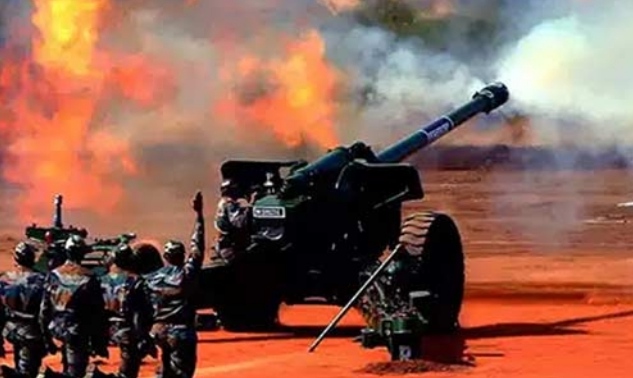India Gearing Up For Weapons Export To Friendly Countries

As per Lt-Gen S K Saini, VCOAS, the Army was pursuing `Make in India’ projects in diverse fields of technology including 3rd-generation anti-tank guided missiles, infantry combat vehicle upgrades, aerial targets, precision ammunition, tank ammunition, auxiliary power units, drone kill systems, mountain radars, to name just a few.
The government has also prepared a roadmap to export indigenously-developed weapon systems and platforms, and will use diplomatic channels to promote them in overseas markets, said Union defence production secretary Raj Kumar. Speaking at a webinar, he said Indian defence attaches posted abroad, embassies and other diplomatic channels will be utilised to help the domestic defence production industry to export such weapons and platforms to friendly countries.
Army vice chief Lt-General S K Saini, on his part, also assured the industry of “full support” by his 13-lakh strong force. The Army is more than ready and willing to fight with indigenous weapon systems but they must pass stringent quality checks and adhere to delivery timelines, he said.
It’s no secret that during crunch situations, technologies developed by other countries would either not be available or if shared, will be at the cost of our strategic autonomy, he added.
The statements come in the backdrop of the defence ministry on August 9 announcing a negative arms imports list, under which acquisition of 101 weapon systems and platforms from abroad will be progressively banned from December 2020 to December 2025.
Moreover, the new draft defence production and export promotion policy (DPEPP) also sets an ambitious target of achieving a turnover of Rs 1,75,000 crore ($ 25 billion), including export of Rs 35,000 crore ($5 billion) in aerospace and defence goods and services by 2025.
The government was already working on a second negative list, while inviting the Indian industry to invest and explore opportunities in the defence sector.
The industry will have to meet the needs of future wars with future products. It will now have to shoulder the responsibility of catering to the requirements of embargoed items domestically.
“All policies of the government, including the defence industrial corridors, the DPEPP and the negative imports list are to ensure that our industry becomes the top producer of defence items in the world said he said.




